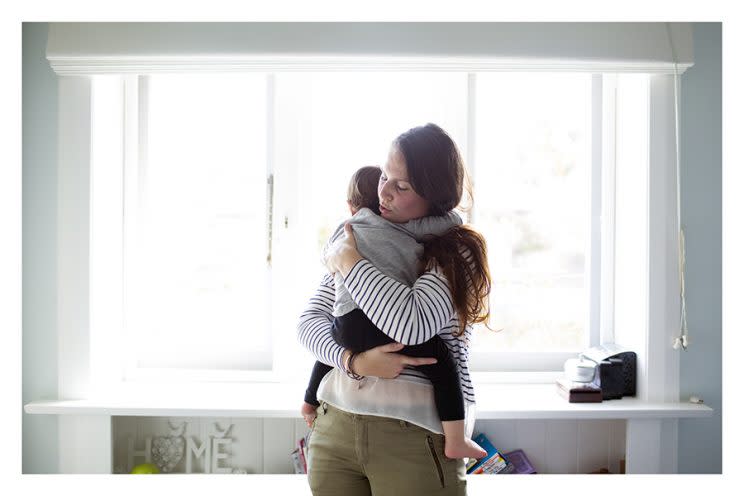Study Says ‘Mom Brain’ Is Real

“Mom brain” is a common trope, used to describe that out-of-it feeling that’s oh so familiar to pregnant women and new moms: searching for a pacifier only to realize that you’re holding it, forgetting the name of your kid’s teacher, or simply feeling out of sorts.
But a study confirms that a mental haze doesn’t mean you’re losing your mind. You really do have mom brain.
According to research published in the journal Nature Neuroscience, pregnancy actually changes a woman’s brain, and the effect lasts for up to two years following the birth of a child. During pregnancy, women experience a decline in gray matter — tissue in the brain and spinal cord that’s mostly made up of nerve cell bodies. It’s the brain’s way of filtering out extra noise in order to focus on the needs of your infant. These brain changes also serve to help women forget the pain of labor and childbirth.
“We certainly don’t want to put a message out there along the lines of ‘pregnancy makes you lose your brain,’” the study’s lead author, Elseline Hoekzema, of Leiden University in the Netherlands, told Science magazine. “Gray matter volume loss can also represent a beneficial process of maturation or specialization.”
All of these brain changes are necessary to help establish maternal instincts. The study showed that the more gray matter lost during pregnancy, the more solid the bond between mom and baby. Interestingly, reports Science, when the women returned for MRI scans two years after giving birth, 11 of them (all of whom had not gotten pregnant since) still showed the loss of gray matter with the exception of the hippocampus, which had partially returned to normal. In fact, the loss of gray matter was so prominent that the study authors could tell who had been pregnant simply by looking at their brain scans. Fascinating!
While the study’s implications about motherhood are unclear, it does suggest that what happens in the brain of a pregnant woman shapes her identity as a parent. The first two years of a baby’s life are crucial in the development of a secure attachment with its mother; and research shows a connection between attachment parenting and lower stress levels, higher emotional intelligence, and empathy among children.
Of course, that doesn’t mean that mothers have to co-sleep, baby-wear, or shun sleep training in order to bond with their babies. Loving and attentive parenting that’s consistent makes both mom and baby happy.
Read More:
Is Having Twin Babies Like Beyoncé Really a Trend?
The 6 ‘Rainbow Babies’ in This Beautiful Photo Have All Been Born
Mother Shares Before and After Photos of Meth Addiction, Inspires Many
Let’s keep in touch! Follow Yahoo Beauty on Facebook, Twitter, Instagram, and Pinterest.

